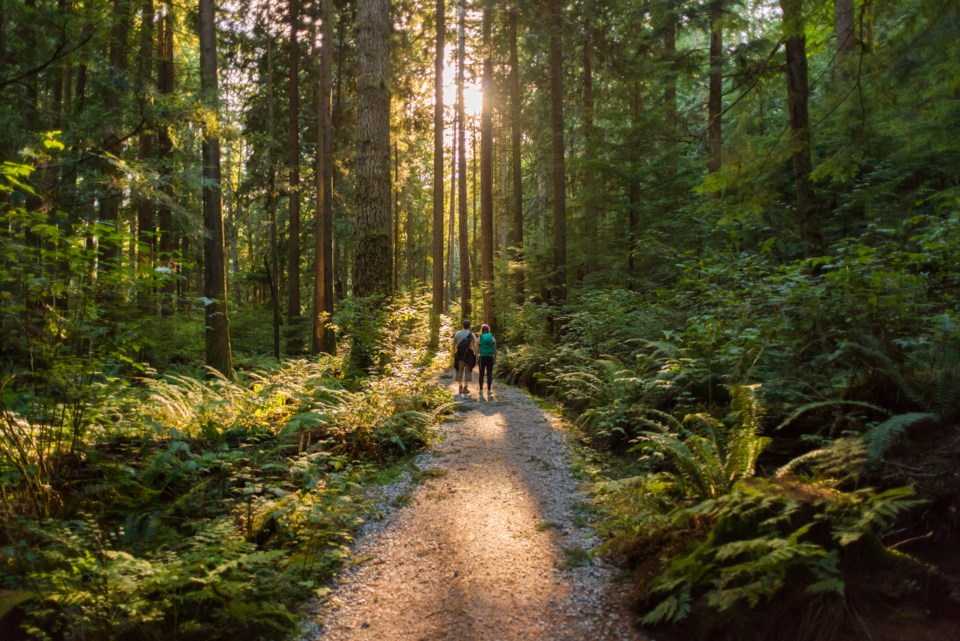If you had to guess the most popular thing to visit in British Columbia, and if you had to guess where the most accommodation is provided, you wouldn’t necessarily think of our parks.
Yet there they are, profound physical presences and quiet successes: The nearly one-seventh of the province as parkland, host to nearly 40 million visits annually, including three million camping visits – more outings than all the concerts and sporting events combined, more lodging than any other form of it.
And no wonder. We have the greatest extent of temperate and boreal rainforests, including the largest coastal temperate rainforest in the world and one of the largest inland ones, as the sixth largest park system of any jurisdiction on the planet. Our 1,037 parks encompass 14.4 million hectares, a larger land mass than the arable land in Spain or Germany.
But we definitely want more of it.
British Columbians overwhelmingly want not only more parkland, but parkland off-limits to development, parkland to be priorities for protection. An economic initiative of this scope, though, requires philanthropic support and personal support alike.
Into this picture last week entered Chip and Summer Wilson with $100 million for the BC Parks Foundation, the charitable partner to BC Parks established in 2018 at arm’s length from government – a donation billed as the largest conservationist donation in Canadian history.
It is their ambition to spur matching donations from individuals – five dollars here and there and everywhere from students, pensioners, everyone – along with other philanthropists and governments to broker deals to achieve a highly ambitious goal of protecting 25 per cent of the province by 2025.
It is called 25 x 25.
Three parcels of land are first to benefit from the Wilson benevolence: Bourguiba Springs in desert country near Osoyoos, Falling Creek Sanctuary in the foothills in northeast B.C., and Teit’s Sanctuary at the confluence of the Nicola and Thompson rivers. All faced a threat to the habitat of development or resource extraction.
In conversation, Chip Wilson, best known as the Lululemon founder, will tell you he gets much of his thinking done in our parks. It’s where he decided to buy in to Amer Sports, parent company to Arc’Teryx, among other things.
He talks glowingly about visiting Stanley Park (“the most beautiful inner-city park in the world”) most every day and doing the Grouse Grind 100 times a year, and he can rattle off the signature parks of the province – his favourite being the challenging West Coast Trail (he’s trekked it twice). Recommendation for what we all ought to take in? “The snowshoe trails north of Whistler in the winter.”
The Wilsons are focusing philanthropy in an area resembling long-termism, where the decision is mindful of the far future, in this case easily over the course of 200 or 300 years. “I don’t put money into crises,” he says.
And while he is proud of a decade-and-a-half in Ethiopia to strengthen its education conditions, he notes he spent so much time on the project’s governance. Had he just spent that time on business making money, he could have donated double his $15 million there.
Chip recalls the advice of the late Joe Segal. “Do you want to be a small fish in a big pond or a big fish in a small pond?” It took the Wilsons back to B.C. to think through how to apply their shared values and a central passion “to provide components for people to have longer, healthier, more fun lives.”
Of this donation, he is clear: “It is just good business.” In part, too, it can be a piece of the puzzle in fashioning reconciliation. “If we can buy the licences for forestry and mining back from the government, and First Nations want to steward the land, that’s going to be a win-win for everybody.” Meaning: It will protect land to permit the best custodians to sustainably contribute to our well-being over a lengthy period. “We didn’t want to give our money away and have the park be developed.” He cites Canmore and Banff in his native Alberta as examples of how there are clear rules inside and outside parkland, something the Wilsons wanted with this gift.
In the hands of the well-governed parks foundation, “the money we are giving lasts forever.”
“We are one of the three or four places in the world that is virtually untouched, and mostly because B.C. is so rugged,” he notes. “If we can buy this land now at a relatively inexpensive price for something that’s going to last forever, it’s going to be the deal of the century.”
Kirk LaPointe is publisher and editor-in-chief of BIV and vice-president, editorial, of Glacier Media.





